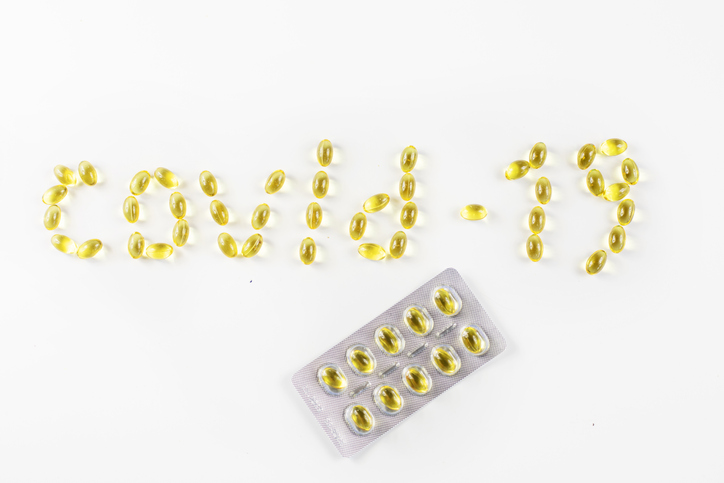Wondering How Much Vitamin D You Need? Your Skin Tone May Be a Factor

By Joy Stephenson-Laws, J.D., Founder
Having a sufficient intake of vitamin D is important to our overall health and wellness. Very few foods naturally contain this nutrient. In fact, it is called the ‘sunshine vitamin’ because our bodies produce vitamin D when our skin is exposed to sunlight.
Vitamin D is important to our overall health and wellbeing for a number of reasons:
- Bone health (this vitamin is needed for absorbing calcium)
- Muscle health (this nutrient helps our muscles move by encouraging nerves to carry messages between the brain and every body part)
- May aid in cancer prevention
- May raise stronger little girls
- May help protect vision
- May slow the progression of multiple sclerosis (MS)
- Prenatal care
Vitamin D has gained a lot of popularity over the last year - thanks to medical studies which suggest that vitamin D may help protect against acute respiratory infections.
Despite how crucially necessary vitamin D is, so many of us have a deficiency in this nutrient. Perhaps we live in a colder climate and do not get outside much. Or maybe we don’t consume enough vitamin D fortified foods or take a vitamin D supplement (it is always advised to consult with a competent healthcare professional before taking any supplements).
In addition to this, darker skinned people are at a greater risk of having a vitamin D deficiency. Darker skin contains more melanin (which is essentially pigment), which provides more of a barrier from absorbing sunlight and being able to make vitamin D (compared to lighter skin).
Although many people are getting vaccinated and some areas of the country are lifting restrictions, I believe that we should still be doing what we can to stay as healthy as possible. And it appears that getting the right nutrients in the right amounts may be one way to stay healthy.

According to a recent study, darker skinned people may require more than the recommended sufficient vitamin D levels to prevent certain infections like COVID-19. This appears to be particularly true in Black people. The study examined data from more than 3,000 patients. The people in this data sample had their vitamin D levels tested within 14 days of taking a COVID-19 test.
“While levels of 30 ng/ml or more are usually considered ‘sufficient,’ the authors found that Black individuals who had levels of 30 to 40 ng/ml had a 2.64 times higher risk of testing positive for COVID-19 than people with levels of 40 ng/ml or greater,” according to one Medical Xpress report that discusses the study.
“Statistically significant associations of vitamin D levels with COVID-19 risk were not found in white people.”
The report mentions additional studies that also illustrate the connection between low vitamin D levels and a higher risk of COVID-19 infection. For example, one study found that 80 percent of patients diagnosed with COVID-19 had a vitamin D deficiency.
It is really important to reiterate that the first study mentioned found that levels of vitamin D higher than what is considered sufficient to be the most effective. This, however, does not mean that you should take megadoses of vitamin D. As always, seek the advice of a competent healthcare professional. He or she will be able to recommend good quality supplements and determine the amount of vitamin D you personally need.
Before taking any supplements, take a comprehensive nutrient test in order to definitively determine if you are deficient in vitamin D or any other essential nutrients. Once you get your results, you will then be able to work with your doctor on next steps (which may include the use of supplements).
Finally, it is important to know that vitamin D deficiency is also common among the elderly, especially in nursing homes.
Enjoy your healthy life!
Disclaimer: This article is not intended to provide medical advice. Please consult with your doctor or another competent healthcare practitioner to get specific medical advice for your situation.
The pH professional health care team includes recognized experts from a variety of health care and related disciplines, including physicians, attorneys, nutritionists, nurses and certified fitness instructors. This team also includes the members of the pH Medical Advisory Board, which constantly monitors all pH programs, products and services. To learn more about the pH Medical Advisory Board, click here.







